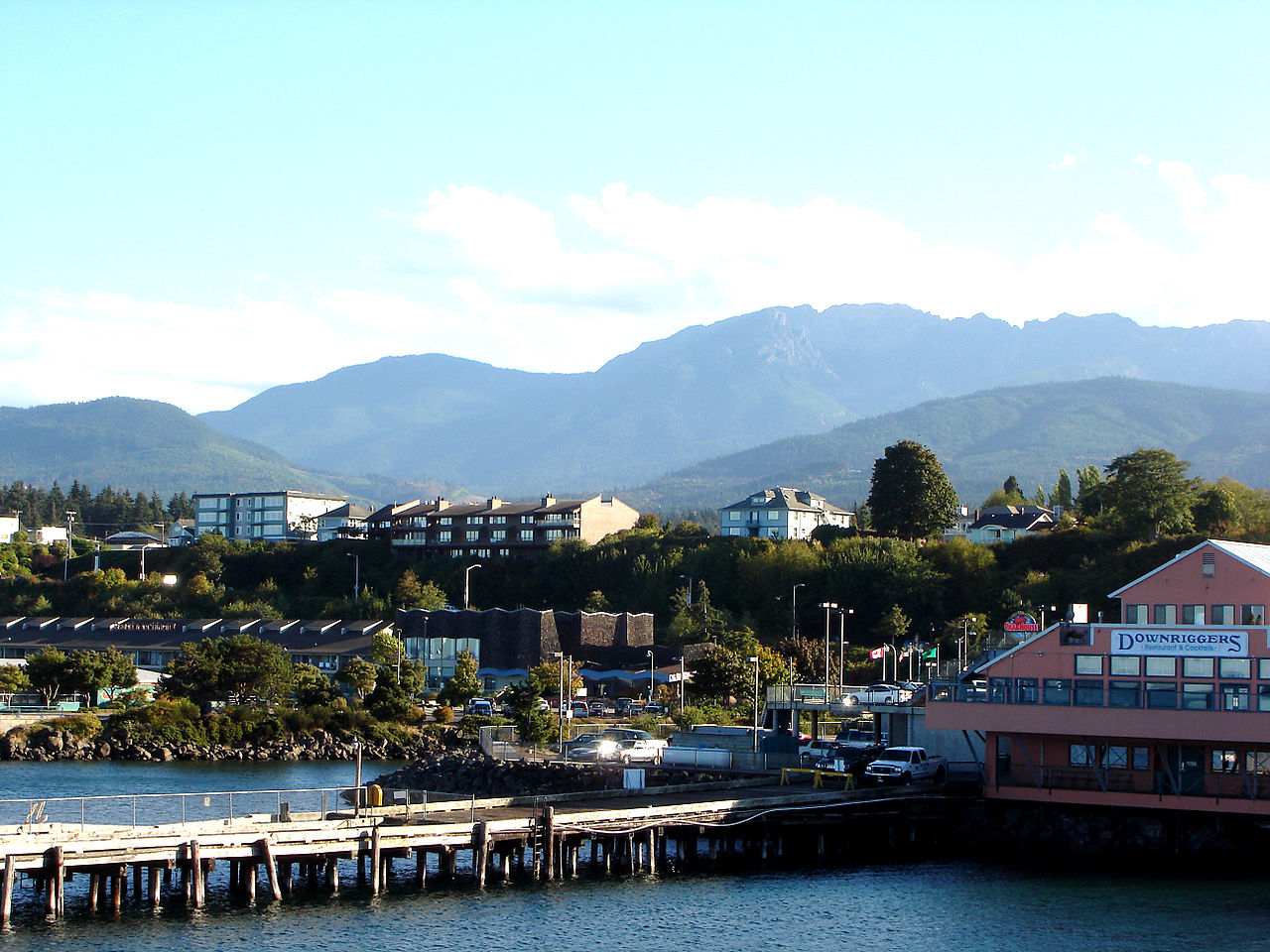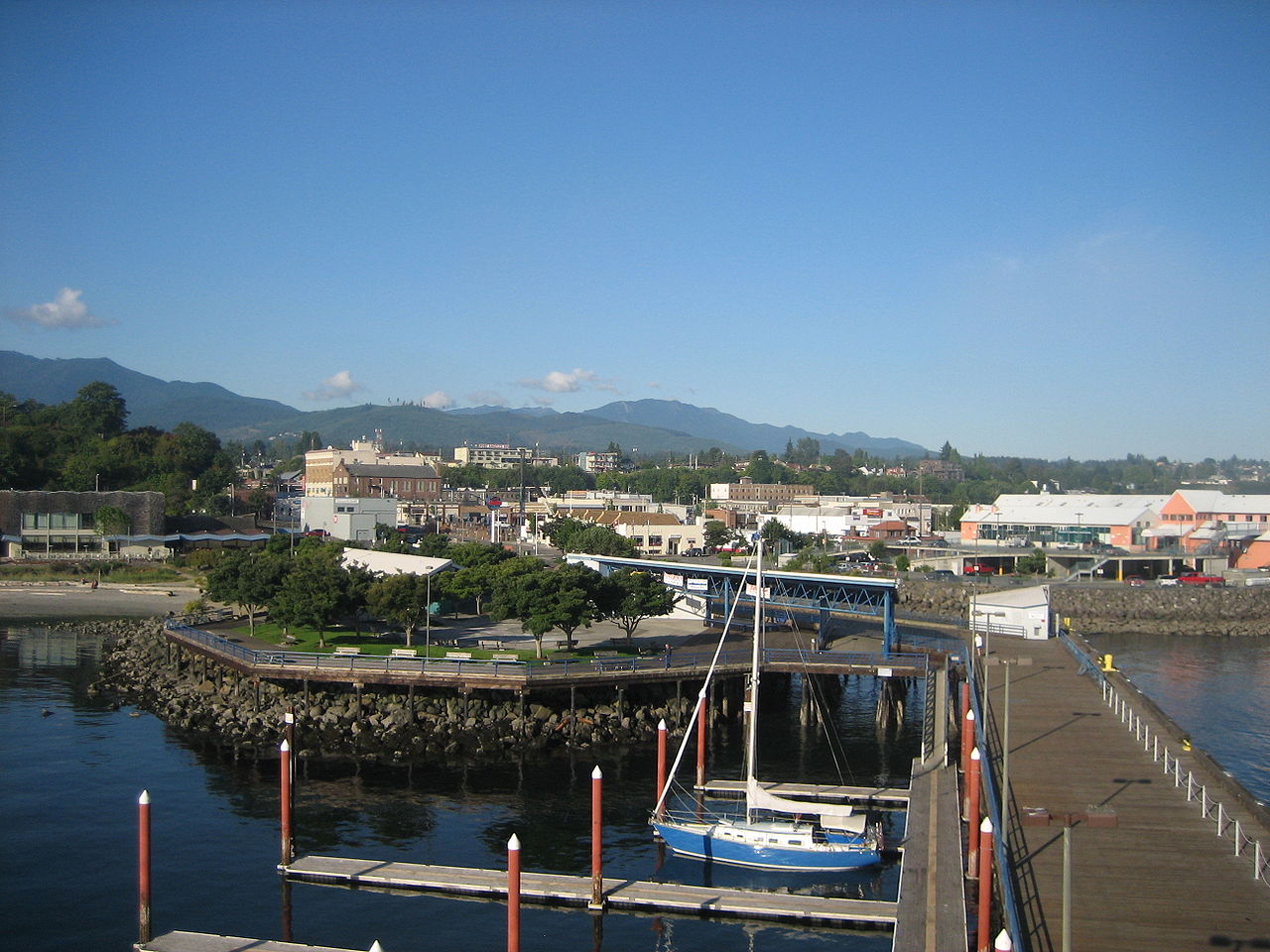Checkpoint: Port Angeles

You've made it to Port Angeles! This area was long occupied by Native Americans. Europeans did not land
here at all until 1791, when Spanish explorer Franciso de Eliza landed here and claimed it for Spain. Early on, Europeans would tend to trade with Native Americans, until the 19th century,
when Europeans began to settle there, and fishing, whaling, and shipping developed.
Later on, President Lincoln would designate 3,520 acres for a federal reserve for lighthouse,
military, and naval purposes. For a time, Port Angeles was growing, but the death of Victor Chase in the sinking of Brother Jonathen made people lose interest in the area,
and it would sink into obscurity until the 1880s. Due in part to the struggles of the Port Angeles economy, tourism has become an integral part of their source of revenue. One thing which helped
this was a bridge opening which cut driving time to Port Angeles from Puget Sound, which allowed for more people to come and visit Port Angeles.
Later on, archeologists were called in to do an excavation. They found around 300 graves and 785 pieces of human bone, as well as several Native American artifacts. Many of these graves appeared
to hold entire families, and it is assumed that these sudden deaths were the result of several pandemics unleashed on Native Americans by Europeans, such as smallpox (information courtesy of Wikipedia.com,
image courtesy of own work / CC BY-SA).

Despite the small size of this town, it does still have some interesting aspects about it. Like Sequim, Port Angeles lies within
the rain shadow of the Olympic Mountains, so it too gets far less rainfall than other parts of western Washington State.
The city is on the nothern edge of the Olympic Peninsula, and is the location of the headquarters of Olympic National Park, which contains the Olympic Mountains. The park was established in 1938, during
the Great Depression and shortly before the US became involved in World War II, and was established by President Franklin D. Roosevelt.
This town has also been home to several notable people, including John Elway, former player for the Denver Broncos, Jim Michalczik, football coach for University of Arizona and Oakland Raiders, as well
as former player for the Arizona Cardinals, Jeff Ridgeway, player for several MLB teams including the Tampa Bay Devil Rays, Atlanta Braves, and Washington Nationals, and Patrick Haggerty, country singer
for the band Lavender Country, who's 1973 eponymous release is the first known gay-themed country album.
Lastly, it's worth noting that Port Angeles is the home of Rygaard Logging, which is featured in the second season of the History Channel's Axe Men (information courtesy of Wikipedia.com,
image courtesy of Vranak at English Wikipedia / Public domain).
To further explore Port Angeles, click here
Pedaling for Parkinsons claims no affiliation with Google Street View
